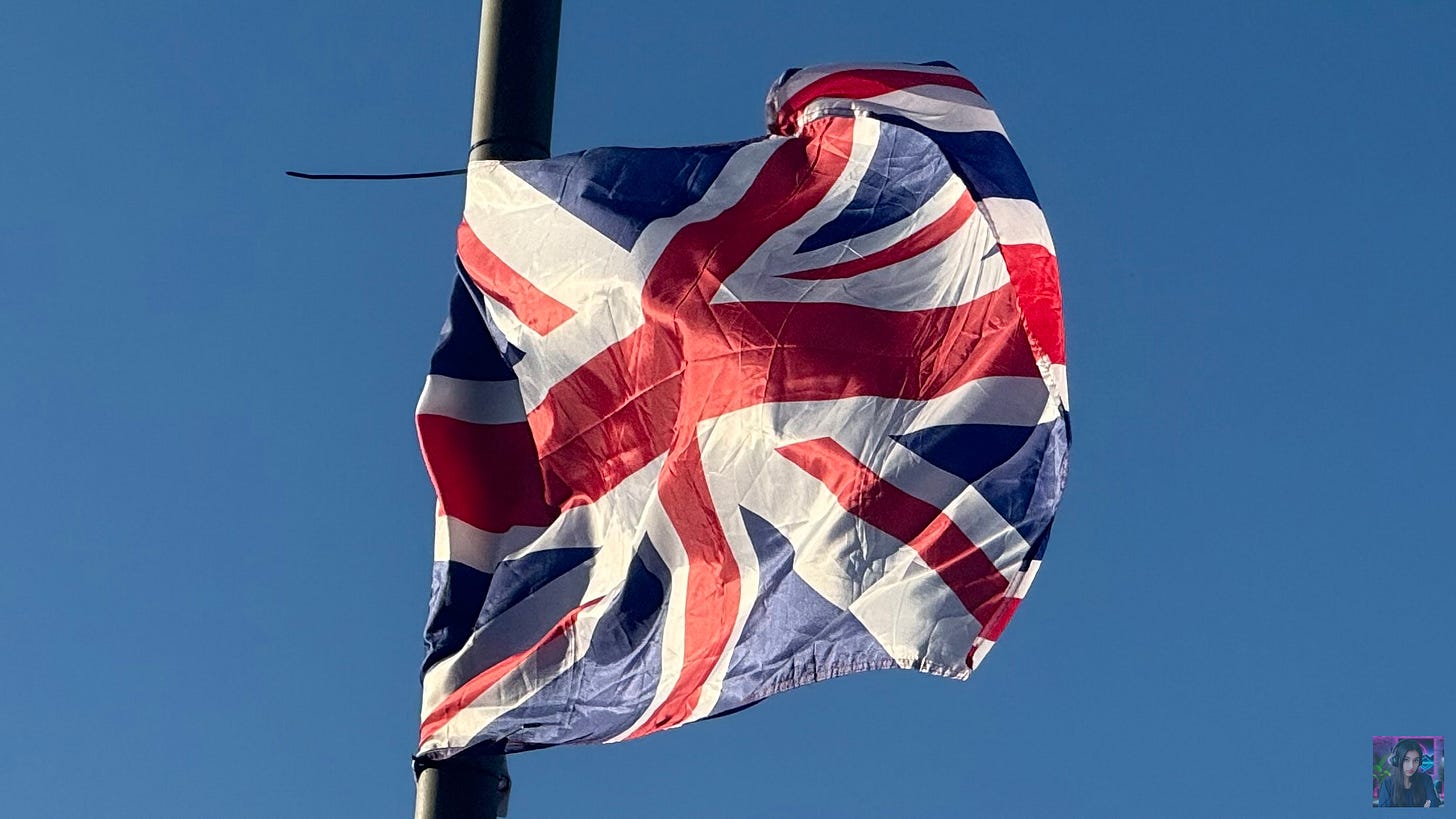Operation ‘Raise the Colours’: An Uncontroversial Controversy
Unity or Division? The Debate Over Britain's Flags
This is a post by our new contributor, Thomas. Expect to see a lot more posts, and we will be posting a schedule of when you should expect posts soon!
Many readers may have been overjoyed to see St. George’s Cross and St. Andrew's Cross being raised in parts of England and Scotland this month. To many, this is a form of strong, well-needed patriotism but to others, there seems to be a darker side to this affair. In this article, I’ll be providing a personal analysis of this story and the sides for which some may take.

For many, the sight of the St. George’s Cross or St. Andrew’s Cross in town squares is nothing more than a simple act of pride. It's the same feeling you get when watching your favourite football team play in a major event, a sense of identity and belonging is bestowed upon you. For these people, the flags aren't political; they are a direct link to their heritage and a way to celebrate who they are. They feel that for too long, national symbols have been seen in a negative light and that it’s time to take them back and use them for good, as a symbol of unity and community.
Yet the story of these flags in Britain isn’t entirely simple. The St. George’s Cross, in particular, has carried many negative connotations for centuries. On the one hand, it is the flag proudly waved during football tournaments or hung from pubs on match days. On the other, it has too often been co-opted by the far-right as a symbol of exclusivity and division. Scotland’s St. Andrew’s Cross has been seen in a fairly positive light more recently, often being associated more with national identity and independence movements rather than fascism or extremism, but it too can stir division depending on the context for which it is seen.
Because of this history, when people see these flags raised today, their reactions are shaped not only by the present political standing but also by decades of shaped meanings. For some, the flags are finally being ‘reclaimed’ for national pride. For others, old memories and associations still remain present, determining how the flags are perceived.
However, to look at this issue only through the lens of patriotism is to miss a crucial part of the story. It’s hard to ignore that national flags have, at times, been co-opted by groups to promote a sense of exclusivity rather than inclusivity. For many who are part of a minority in Britain, these flags can feel like a symbol of division, a reminder that they might be seen as something other than British. The fear is that a display of patriotism can tip over into something darker and harsh, a form of aggressive patriotism that pushes people away instead of bringing them together.
Have a watch of this 10 minute clip from GB News to gain further insight into the matter ⬇️
So, where do we go from here? The controversy itself is not about the flags but about what we believe they represent. While a flag is just a piece of cloth, what truly matters is the intention behind raising it. Is it to celebrate heritage and unite communities, or is it to create borders and divisions and push others away? Maybe the real question isn’t whether these flags should be raised, but whether we can raise them in a way that unites rather than divides. That choice lies with all of us.
When you see the flag raised, what does it mean to you?




In my experience most of the hate I have seen toward the flags are not due to their history but due to those who are going out of their way to raise them.
Since I’ve been born, everyone around me and everyone I know has not cared for our flag or whether it is raised and from what I’ve seen, a lot of people throughout the nation also do not care. Due to this, people are displeased with this Operation because in a country where most people do not care for our flag, the few that do are raising it not for patriotism but because “we are being invaded” and as a way to take a stand against foreign people, or more specifically people of colour.
Whilst some may be raising it because they love their country, this operation is a movement largely based on racism due to the current political climate and their comeback is typically “oh we can’t have our own flag in our country?” however many fail to educate themselves on the fact that they are vandalising council property such as roundabouts (for example).
So what happens when the flags are removed by the council? More racism and hate toward issues such as Palestine or just Muslims in general.
The issue is, some want our flag to be normalised in the country however that’s very difficult to do with people who are apathetic to the “cause”.
Another thing I found funny was an experience from an immigrant. Apparently, they expressed their immigration status to someone who is against it but said person did not care because the immigrant was white and said person was one of those raising the colours. Obviously, I can’t quote the story and I don’t know what actually happened but with the people I see doing this event for flags (painting a Swiss flag on a roundabout), it wouldn’t surprise me if it was valid.
In summary, like I said: I think the issue is more toward the people raising the colours, not the history of the flags. This is topped by the general population who largely do not care about having flags raised.